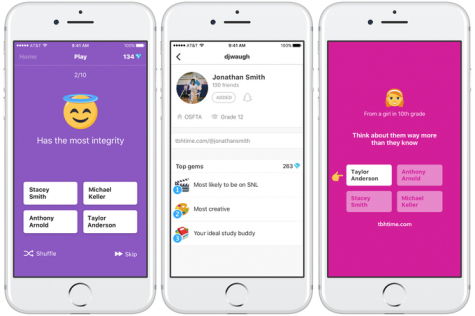Shaker Students Evade Wi-Fi Restriction
As students travel to websites like Snapchat and Amazon, the Barracuda web filter frustrates many
The Wi-Fi Restriction set by Barracuda is often seen by students on the school’s Wi-Fi trying to get to websites like Facebook, Snapchat, and other social media.
“It’s just an inconvenience,” freshman Ethan Cord said referring to the school Wi-Fi restrictions on where one can surf on the web. Instagram, Twitter, Snapchat and other websites deemed inappropriate “are not allowed.” But these restrictions on the web aren’t foolproof.
Users can circumvent the internet restrictions by employing a program called a Virtual Private Network, or VPN. According to Brian Gilberta, website administrator on Whatismyip.com, this program adds security to private and public networks. “The program uses advanced encryption protocols and secure tunneling techniques to encapsulate all online data transfers,” he said.
This means that the program uses encryption or disguising techniques to thwart online data transfers. An online data transfer can be anything from a virus to a funny cat video. It also includes the Wi-Fi rules that are enforced by an administrator, meaning it effectively blocks the restrictions placed on the high school’s Wi-Fi.
This program can be downloaded for free on the App Store on iPhones and other smartphones. Freshman Jadon Tinnon (a non VPN user) said, “some rules are too harsh,” including the blocking of social media sites. However, he feels that the blocking of inappropriate websites is okay.
But are VPNs allowed? According to John Rizzo, Head Technology and Media Services they are not. “Circumventing the district’s filter is not a permitted activity and is in violation of the Acceptable Use Policy. The policy states students will use network resources for ‘learning activities facilitating school instructional objectives,'” he said.
This brings up the question of how is the district going to stop the use of VPN and who is going to enforce it. “In terms of prevention, suffice it to say that as long as there are web filters there will be students attempting to bypass them,” Rizzo said. “Internet content and the devices used to connect to that content change so quickly it renders web filtering an imperfect science.”
What Rizzo is trying to convey is that the district cannot do anything to stop people using VPNs to view things deemed inappropriate, but what they can do is improve the quality of the restriction. The definition of the word “inappropriate” has many different interpretations, however.
The Federal Communication Commission (FCC) requires schools to follow rules and regulations outlined in the Children’s Internet Protection Act (CIPA). As stated on the FCC website, “CIPA was enacted by Congress in 2000 to address concerns about children’s access to obscene or harmful content over the Internet.”
In order to comply with this law, the District employs a filtering device which restricts access to Internet content deemed ‘harmful.’ Example blocked content categories include, but are not limited to, pornography, violence and guns. The District also blocks access to Internet content that is not overly harmful but is also not conducive to an instructional environment or could be used in a harmful manner. This would include social media sites that can be misused and foster objectionable actions such as cyberbullying.
“In addition to online safety concerns, social media sites also carry with them a price in the form of bandwidth utilization,” said Rizzo. Bandwidth is a term used to describe a network’s speed of data transfer, meaning having more devices using the same network will slow down the speed of the internet. “The District must prioritize the utilization of our finite network and Internet resources in order to ensure that teachers, students and staff can access the tools they need for day-to-day work.”
“As a result, priority is given and access is provided to sites necessary for student learning, teaching and the core operations of the District,” he said.
“If a person were to get caught somehow, the consequences are just the ones listed in the student handbook for misuse of technology and the internet agreement, but getting caught is pretty slim,” Inman said. “I haven’t had to deal with this one yet directly.”






